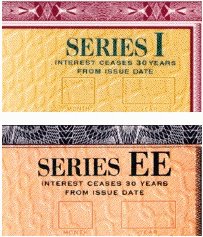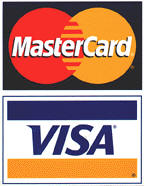 Are you tired of low interest rates at the bank? Are you looking to make more than .6% on your money market account. How about earning 10 times that amount with virtually no risk? Sound too good to be true? Well look no further than the US government I bonds.
Are you tired of low interest rates at the bank? Are you looking to make more than .6% on your money market account. How about earning 10 times that amount with virtually no risk? Sound too good to be true? Well look no further than the US government I bonds.I bonds are sold at face value unlike Series EE bonds that are sold at 50% face value. I bonds can be purchased at your local bank and are sold in the following increments $50, $75, $100, $200, $500, $1,000, $5,000, and $10,000, and earn interest for as long as 30 years.
I bond earnings are added every month and interest is compounded semiannually. They are state and local income tax exempt, and Federal income tax on I bond earnings can be deferred until the bonds are cashed or they stop earning interest after 30 years. Investors cashing I bonds before five years are subject to a 3-month earnings penalty.
Click here for full story
Did you know that you can even setup an account with the U.S. Treasury to purchase Series I U.S. savings bonds, just goto Treasury Direct. Through this process you can have the Treasury hold the bonds in electronic form in your Treasury Direct account. If you want to hold the bonds in physical form and can't find a bank in your area that sells them, I suggest that you contact the Federal Reserve bank that services savings bonds for your area of the country and ask about buying the bonds. This Bureau of the Public Debt's Web page will provide you with that contact information.
What if you lose your bonds, oh my! Bonds that are lost, stolen, mutilated or destroyed can be replaced free of charge as long as we (the Bureau of the Public Debt) can establish that the bonds haven't been cashed. To assure that the bonds can be traced, owners should keep records of bond serial numbers, issue dates, registration and Social Security or taxpayer identification numbers in a safe place separate from the bonds. (The Savings Bond Wizard is a great way to do this!) Just complete the Form PDF 1048 to get your bonds replaced. On this form, provide the approximate issue date along with the complete names, addresses, Social Security number that appeared on the bond and the bond serial number. If you don't know the serial number or denomination, just write "unknown" in the space provided.
Related posts:
Thanks for visiting please check out my other blogs and websites:
If you enjoyed this post please Subscribe to Strategies for Life. If you would like to tag this post at del.icio.us click here.
Technorati tags: mutual funds investing u.s. savings bonds



 Paying off your credit cards, getting out of debt!
Paying off your credit cards, getting out of debt!